Alas, after a few months with no DNFs, my streak is broken: there were a few this month!
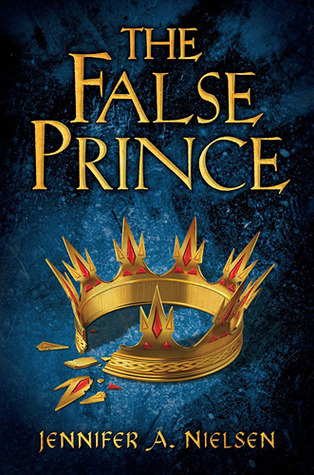
Genres: Fantasy
ISBN: 0545284139
Goodreads

In a discontent kingdom, civil war is brewing. To unify the divided people, Conner, a nobleman of the court, devises a cunning plan to find an impersonator of the king's long-lost son and install him as a puppet prince. Four orphans are recruited to compete for the role, including a defiant boy named Sage. Sage knows that Conner's motives are more than questionable, yet his life balances on a sword's point—he must be chosen to play the prince or he will certainly be killed. But Sage's rivals have their own agendas as well.
As Sage moves from a rundown orphanage to Conner's sumptuous palace, layer upon layer of treachery and deceit unfold, until finally, a truth is revealed that, in the end, may very well prove more dangerous than all of the lies taken together.
A friend told me about his experiences reading books he knows nothing about beforehand – usually books that are gifts – and I thought this was such a cool idea, I asked him to pick out a book for me to try that way. (And kudos to him – it only took him three tries to find a book I’d never heard of/knew nothing about!)
That book was False Prince, and it very quickly became clear it was going to be a DNF.
I think this was very much a case of Wrong Reader Syndrome: False Prince isn’t objectively bad, it’s just packed full of tropes I’m indifferent to, written in a style I personally don’t like. It’s also YA, which I’ve been reading less and less of because I don’t enjoy how simplistic most YA feels to me these days. (I say most, not all. The best kind of YA is rich and complex and passionate and doesn’t talk down to its teenage readers – but I have a hard time finding YA SFF like that lately. Recs are welcome!)
Even without reading the blurb (part of the ‘knowing nothing beforehand’ challenge) the combination of title and early chapters meant I could see the Le Gasp reveal coming from miles away, and I just don’t have any interest in these kinds of con stories. The author came up with a good, solid reason for why the cast has only two weeks to pull this off, but that doesn’t change the fact that my suspension of disbelief simply doesn’t strech far enough to accept that you can turn a ragamuffin orphan into a believable prince in two weeks. I’m reminded of the late Jay Lake’s book Green, wherein the main character is trained for years to be a Proper Lady – because that’s how long that process would actually take.
The prose was very simple, with occasional jarring moments where a sentence was phrased very oddly, or a line was ‘out of tune’ with the surrounding passage. I continue to wish I knew the technical term for this, because it happens all the time: I’ve tried to research it, but no luck so far. It’s hard to look something up when you don’t know what it is, I guess.
TL;DR = a book meant for the younger end of YA, objectively perfectly fine but absolutely wrong for this particular reader.
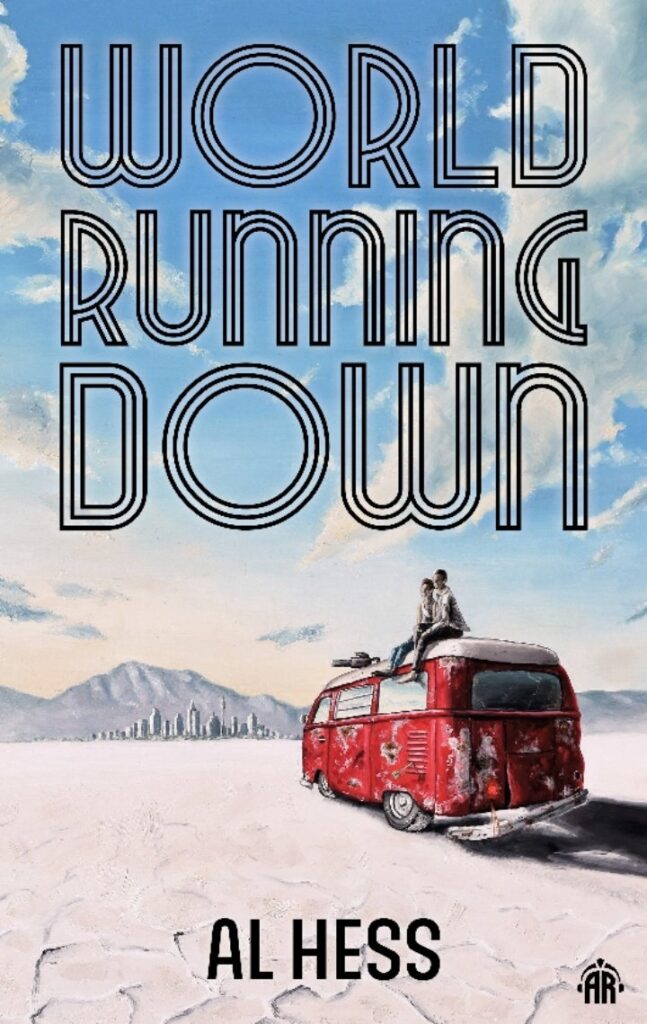
Genres: Queer Protagonists, Sci Fi
Representation: Trans MC, M/M
Published on: 14th February 2023
ISBN: B0B2Z9R77N
Goodreads

Valentine Weis is a salvager in the future wastelands of Utah. Wrestling with body dysphoria, he dreams of earning enough money to afford citizenship in Salt Lake City – a utopia where the testosterone and surgery he needs to transition is free, the food is plentiful, and folk are much less likely to be shot full of arrows by salt pirates. But earning that kind of money is a pipe dream, until he meets the exceptionally handsome Osric.
Once a powerful AI in Salt Lake City, Osric has been forced into an android body against his will and sent into the wasteland to offer Valentine a job on behalf of his new employer – an escort service seeking to retrieve their stolen androids. The reward is a visa into the city, and a chance at the life Valentine’s always dreamed of. But as they attempt to recover the “merchandise”, they encounter a problem: the android ladies are becoming self-aware, and have no interest in returning to their old lives.
The prize is tempting, but carrying out the job would go against everything Valentine stands for, and would threaten the fragile found family that’s kept him alive so far. He’ll need to decide whether to risk his own dream in order to give the AI a chance to live theirs.
I received this book for free from the publisher via NetGalley in exchange for an honest review. This does not affect my opinion of the book or the content of my review.
I quit World Running Down at 41% – much later than the 20% that is my usual deciding point (ie, if I don’t care how a book will end by the time we hit 20%, I Do Not Finish it) – because I kept hoping it was going to get better.
It didn’t.
A fair bit of my critique is actually aimed at the publisher: the blurb/synopsis of World Running Down gives far too much away, undercutting the book’s attempts to surprise. The narrative frames the nature of the ‘merchandise’ the main characters are hired to retrieve as a Big Reveal…but we already know the merchandise = androids, because it says so right on the back of the book. That’s not Hess’ fault: that is squarely on whichever idiot wrote the blurb. I feel pretty sorry for Hess, having his story spoilered like that on the freaking back cover. It definitely doesn’t help with the reading experience.
That doesn’t make me inclined to go any easier on World Running Down, though: the fact is that the writing is extremely basic, the prose plain and blunt and direct. It’s easy to read, but it’s also kind of mind-numbing, simplistic to the point of being urgh. The story itself is also, in my opinion, far too straightforward and eye-rollingly predictable: of course the city is disgustingly rich and decadent; of course the Al begins to appreciate being humanoid and also catch Sexy Feelings for the only person who treats him like a person; of course the villains are cartoonishly evil and awful. Minor spoiler: View Spoiler » The instalove is actually pretty believable under the circumstances – Valentine and Osric have a lot to commiserate about and bond over, and they’re each the first person to ever really ‘get’ the other – but that doesn’t mean it’s not also boring.
There’s definitely ‘an attempt was made’ vibes: bits and pieces of almost interesting ideas are scattered about, like the comparisons drawn (very, very unsubtly) between Valentine’s body dysphoria and Osric’s distress at having a body at all; or the glimpses we get of Al culture and the societal dynamics of AI/human interaction. But none of it was enough to get me to the halfway mark, never mind the ending.
I truly think World Running Down needed to be a lot longer: the fact that Valentine and Ace receive their marching orders at 40% of the way through the book means – thanks so that too-revealing blurb – that the reader already knows almost the entire first half of the story before ever opening the first page. And that’s simply ridiculous. Either finding-out-the-job needed to be a much smaller part of the book – not by cutting anything that comes before it, but by adding a lot more after it – or the synopsis desperately needs rewriting.
Or, you know. Both. Both would be my vote.
This next part is not intended as objective critique, but is just my personal preference: I’m tired of queer suffering. I’m agender; trust me, I get how much it fucking sucks to be misgendered, and have people thinking or insisting that you’re a woman when you’re fucking not. But equally? I don’t want to read about it. And some of that is on me: the synopsis of World Running Down is very clear about how Valentine is Not Having A Good Time, and I went ahead and (tried to) read it anyway. But some of it is also on the marketing (so, again, not the fault of the author) which has been pushing this book as cozy feel-good queer scifi. It’s really not. It’s not Trauma Porn – Hess is very clear on the distinction and good at staying on the right side of that line – but you should definitely be braced for trans misery, transphobia ranging from big and blunt to micro-aggressions, and lots of fun dehumanisation (though that’s reserved for the Al and android characters).
Overall? I don’t think World Running Down is a bad book. But it’s so simple, so obvious, so basic. There’s nothing to sink your teeth into. The things it has to say are not new, the interesting ideas/topics within are touched on only superficially, and the plot is too predictable to hold the attention. So, it’s not bad? But it’s not especially great either.

Genres: Fantasy, Historical Fantasy
Published on: 21st February 2023
ISBN: B0B38SS6P1
Goodreads

It is 1912, and for the last seventy years magic has all but disappeared from the world. Yet magic is all Biddy has ever known.
Orphaned in a shipwreck as a baby, Biddy grew up on Hy-Brasil, a legendary island off the coast of Ireland hidden by magic and glimpsed by rare travelers who return with stories of wild black rabbits and a lone magician in a castle. To Biddy, the island is her home, a place of ancient trees and sea-salt air and mysteries, and the magician, Rowan, is her guardian. She loves both, but as her seventeenth birthday approaches, she is stifled by her solitude and frustrated by Rowan’s refusal to let her leave. He himself leaves almost every night, transforming into a raven and flying to the mainland, and never tells her where or why he goes.
One night, Rowan fails to come home from his mysterious travels. When Biddy ventures into his nightmares to rescue him, she learns not only where he goes every night, but the terrible things that happened in the last days of magic that caused Rowan to flee to Hy-Brasil. Rowan has powerful enemies who threaten the safety of the island. Biddy’s determination to protect her home and her guardian takes her away from the safety of Hy-Brasil, to the poorhouses of Whitechapel, a secret castle beneath London streets, the ruins of an ancient civilization, and finally to a desperate chance to restore lost magic. But the closer she comes to answers, the more she comes to question everything she has ever believed about Rowan, her origins, and the cost of bringing magic back into the world.
I received this book for free from the publisher via NetGalley in exchange for an honest review. This does not affect my opinion of the book or the content of my review.
I went even further with Magician’s Daughter then I did World Burning Down – 50%. I pushed myself to the halfway point of the book, but I just couldn’t find the spoons to keep on with it after that.
First, the good: Parry subverts expectations all over the place with this one, so that every time I thought I knew what was about to happen – because This Particular Thing (whatever the Thing in question was) always happens This Particular Way – I was pleasantly surprised to be proven wrong! Points for that: I love it when I can’t predict what’s around the next plot-twist!
But to be honest, Magician’s Daughter feels like it doesn’t know what it’s trying to be, whether it wants to be whimsical or grim (not in a grimdark way, more in a ‘London in this time-period was not a great place to be’ kinda way). We have the delightful black bunnies of a magical hidden isle on one hand, and a bitter, sadistic human/raven hybrid on the other – and the two moods/aesthetics don’t mesh very well. The dissonance comes out in the narrative, which works very hard to make magic seem magical and the monsters seem monstrous, and doesn’t really do a great job at either.
What even is Magician’s Daughter? An adventure? A coming-of-age story? A quest to save the world? It tries to do it all, and thereby weakens each aspect of the story, rather than picking one and doing it well.
I’m not a fan of reveals that come out of nowhere – I much prefer it when an author drops clues along the way, so that when we get to a capital-r Reveal, I can see, in hindsight, how the groundwork was laid for it. The halfway point of this book is full of answers to important questions – but none of the answers were things we could have worked out from the information we had. There were no clues, so it almost comes across as info-dumping (especially since quite a lot of it takes place in a single conversation). I appreciated that The Truth was not what I expected it to be; that Parry takes our expectations of how this is all going to go (because we’re so used to This Kind of Thing always going This Way, like I said before) and deliberately does Something Else instead. But I didn’t like the way we found out about it all, and the Something Else itself wasn’t very interesting to me; it was a relatively minor change to the status quo, not a game-changing one.
I just didn’t find anything appealing about Magician’s Daughter. Biddy isn’t an especially interesting character; Rowan ought to be, but rapidly becomes unlikeable; the prose didn’t do justice to either the awfulness or the wonder. I never felt anything for this story; none of it made me anxious, or curious, or delighted; I was never on the edge of my seat; I never felt enchanted. And even after we started getting answers and revelations and secrets were all being uncovered, I just didn’t care. There’s absolutely nothing that makes me want to find out how it all ends.
So I’m not going to.
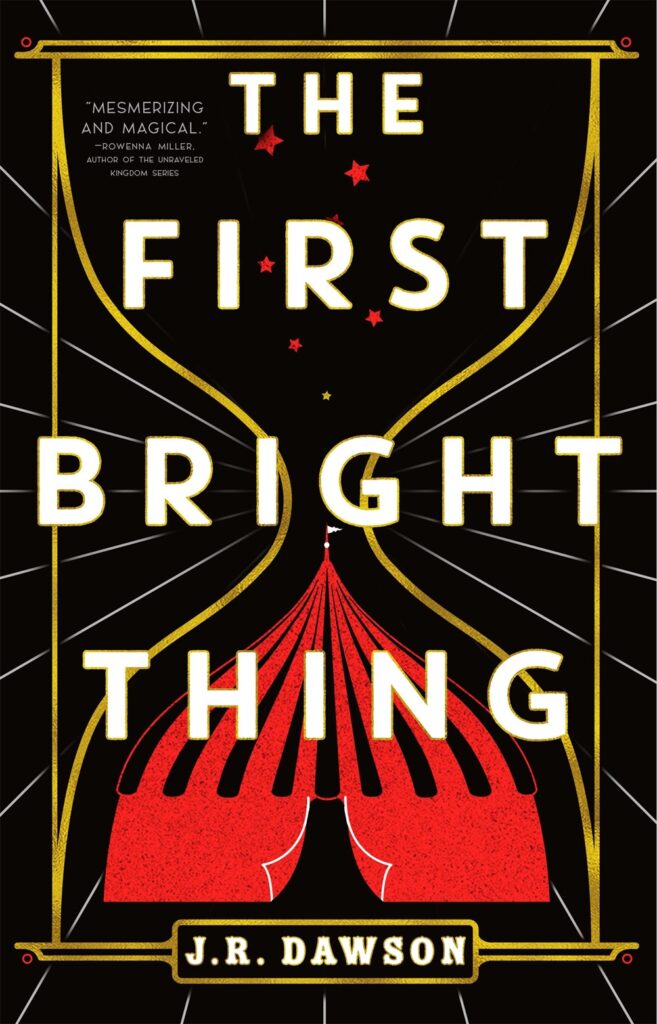
Genres: Fantasy, Historical Fantasy, Queer Protagonists
Representation: Sapphic MC, F/F, secondary PoC characters
Published on: 13th June 2023
ISBN: 1250805570
Goodreads

If you knew how dark tomorrow would be, what would you do with today?
"This is the magic circus book that I have been looking for all my life."―Seanan McGuire, New York Times bestselling author of Every Heart A Doorway
Ringmaster — Rin, to those who know her best — can jump to different moments in time as easily as her wife, Odette, soars from bar to bar on the trapeze. And the circus they lead is a rare home and safe haven for magical misfits and outcasts, known as Sparks.
With the world still reeling from World War I, Rin and her troupe — the Circus of the Fantasticals — travel the midwest, offering a single night of enchantment and respite to all who step into their Big Top.
But threats come at Rin from all sides. The future holds an impending war that the Sparks can see barrelling toward their show and everyone in it. And Rin's past creeps closer every day, a malevolent shadow she can’t fully escape.
It takes the form of another circus, with tents as black as midnight and a ringmaster who rules over his troupe with a dangerous power. Rin's circus has something he wants, and he won't stop until it's his.
I received this book for free from the publisher via NetGalley in exchange for an honest review. This does not affect my opinion of the book or the content of my review.
Of all the books I DNFed this month, The First Bright Thing was definitely the one I was most excited for. And I think a lot of people are going to love it! For very good reasons! But for me, it just didn’t click.
Alarm bells started ringing with the very first line of the book;
The Spark Circus always arrived when no one was looking, early in the morning.
It’s hard to believe that that’s not an intentional reference to/echo of The Night Circus by Erin Morgenstern, since the first line of that is
The circus arrives without warning.
That’s a pretty well-known line – I’ve seen it on prints, enamel pins, clothing, cups, journals, everything. It’s difficult for me to imagine a fantasy author – especially a fantasy author writing about a magical circus! – is unaware of The Night Circus. That book was a global phenomenon even outside the SFF community. So the first line of The First Bright Thing doesn’t feel like an accident.
I’m not accusing Dawson of plagiarism – that would be nonsensical, that’s clearly not what this is. It could be a respectful/happy homage to The Night Circus; it could simply be a nod of recognition to a book that did the Magic Circus trope before The First Bright Thing (but then, so did dozens if not hundreds or thousands of other books???); it could be a way of saying ‘yes, I’m walking in Erin Morgenstern’s footsteps’ (but then, again, also the footsteps of many, many other storytellers, so???) It might be that someone along the line suggested to Dawson that crafting a first line that echoed that of The Night Circus might help draw in fans of that book, might be a good idea.
I don’t think it was. I think it was a really, really bad idea. Why would you want readers immediately comparing The First Bright Thing to The Night Circus (any more than they already will, I mean, because Magic Circus)? It’s generally agreed that The Night Circus is an especially beautiful book, both in terms of prose style and imagery, and the nostalgia factor has gilded the memory of a book most fans probably haven’t reread in a while. That’s not something you want people measuring your book up against!
And besides, The First Bright Thing is different to The Night Circus in…almost every single way? They both feature magic circuses. That’s it. So if your goal is to draw in Morgenstern’s fans and make them hopeful that they’re going to get another book like The Night Circus…they’re not going to? And they will be disappointed? And more likely to judge The First Bright Thing negatively, because they’re (unconsciously, I’m pretty sure) now viewing it as a poor imitation of one of their favourite books, rather than judging it on its own merits???
Am I overthinking this? Quite possibly.
For me, that first line struck a sour note, both because I find it uncomfortable for a book to echo another book this way (I’m sure it’s not meant to be, but I can’t help but feel that it’s somehow rude?) and because the phrasing is kind of clunky (especially in comparison to the neat, simple elegance of ‘The circus arrives without warning.’)
The phrasing – writing – turned out to be my big issue with The First Bright Thing, the reason I quit before finishing it. It’s not that Dawson is a bad writer, but I would have sent this manuscript back for another round of polishing, because quite lovely lines are juxtaposed with very awkward ones that break the writing rhythm. The former make it clear that Dawson has the ability to be great; the latter just…grated.
Take this paragraph, which comes near the end of the first chapter;
Some circuses didn’t allow audience members on the main floor after the show, but Rin liked to watch the crowd poke at the props and set pieces, trying to spot any tricks up the circus’s sleeves. It was part of the nightly ritual; to watch from the wings as the audience spilled onto the floor like the end of a baseball game, intoxicated and invigorated by what they’d just witnessed. Real magic was a strong drink to take in.
Bolding is mine.
See, I think most of that paragraph is great! The baseball game imagery works! I get what it means! …And then there’s that line at the end. ‘Real magic was a strong drink to take in.’ I think I understand what Dawson is trying to say, but it’s just phrased very clumsily, and I don’t think it mixes well with the baseball game imagery. It’s also unnecessary to getting the point of the paragraph across. I would have cut it, personally.
There are a lot of lines like that, lines that are clunky, and sometimes outright confusing or unclear. Usually, said lines are trying to express something very meaningful and poignant – and there are a good number of times when Dawson gets it right, and those moments pack punch! But it’s jarring when it goes wrong, and it goes wrong a lot, and it’s like listening to someone playing music when they keep hitting the wrong notes – I keep twitching, and I absolutely cannot relax and enjoy myself, regardless of how many boxes the book’s premise and description tick for me.
No war, no Circus King would touch this. She could do this. She could protect them all. When Odette had met her, years ago, Rin had been nothing but hard armor. She’d tried so hard to let it go, to let them all into her heart, to believe no shadows would follow her. The world had carried on, and now, in 1926, people knew the future would be bright. It had to be. Nothing could be as bad as what had come before.
This reads like it should be three separate paragraphs; we have a) Rin’s desire to protect, b) Rin’s difficulty letting people in – and then it jumps to c) the world having carried on. It jumps from topic to topic in a way that doesn’t work for me; it feels jerky and random, not smoothly flowing the way it ought to.
A few more examples, lines or images that didn’t make sense or didn’t work for me;
“I can hold the weight I need to hold,” Rin said solidly. Like she’d formed cement bricks along her bones, burying whatever was beneath and fortifying her to move forward.
Bricks along her bones?
a man called Ford, who could change his voice to sound however he’d like.
the way the backstage crew worked like something between a ballet dance and a clock.
You can see what is trying to be said here! It’s so close! The phrasing just needs tweaking.
“Tonight!” she sounded. “Tonight you will see things you never thought you would live to see! You will realize that in this world, there are dreams that are only just out of reach.”
That…is not the optimistic speech you think it is? What??? Why would you tell them about dreams that are out of reach? And ‘tonight you will see things you never thought you would live to see’…that would make sense if you were time-travelling from the future, I guess? Otherwise, I don’t understand???
“This circus is a way to hide?” Jo said.
“No,” the Ringmaster said, calmly. “No, we do much good here. Empires have always underestimated artists. And it works in our favor. It makes us powerful. No one expects us to change the world, and so we do.
Amazing mission statement, but not at all an answer to the question? Is this a way to hide? No, we do much good here. Those two points aren’t related to each other. I think I see what the Ringmaster is trying to say, but it’s frustrating.
He was one of many calcified children who had to grow up too fast. And Jo was one of many invisible girls trying to disappear into the cracks of the world.
…I think I get what you’re trying to say here, but calcified anything can’t grow, and invisible people don’t need to disappear? Because they’re already invisible? What???
But then we get lines like this, which are simply *chef’s kiss*
It made this downtown an industrial otherworld; one foot in progress and the other in prairie.
I LOVE that! That is an amazing line! You immediately get what it’s saying, the image is fantastic, and I am an ardent fan of alliteration. Perfect!
It was now time to add the pathos to the logos and ethos.
Genius!
This girl was sitting on a precipice and she could fall or she could fly. Maybe Rin could build her a bridge…
Brilliant!
So while I was majorly frustrated by the clunky lines, there is a lot here for readers to like – and I know I’m incredibly picky when it comes to writing style, which is why I included so many examples; if the lines that make me twitch don’t bother you? Then you can, obviously, ignore that whole part of my critique.
I did have a few more problems with this book, though. Very quickly, we learn that the purpose of the circus – this particular circus, I mean – is to find people who ‘need something in their life’ and customise each night’s performance for that one visitor they foresee attending. And those visitors then walk away with hope or courage or resolve or whatever it is they needed.
I just…immediately didn’t buy that. Because I don’t see how even the most incredible circus could do that. A thing of beauty, including all kinds of performance art, can absolutely inspire, and fill people with powerful emotion. But the idea that every night, this circus changes someone’s life? What kind of performances are you giving? What are you doing? I mean in practical, literal terms, what are you doing? How do you change/edit/customise the acts so that this night, you will fill someone with courage they’ll carry with them forever, and the next night, hope? What do the clowns do differently on a courage night, as opposed to a hope night?
(In fairness, maybe there would have been more detail on this further on in the book – I stopped a third of the way through. But given how this entire explanation of their mission is info-dumped on the reader, I’m not betting on it.)
So the premise of the circus itself immediately didn’t make sense to me – I couldn’t suspend my disbelief enough, I guess – but there are also bits of the worldbuilding that made me frown, like the law that says Sparks and not-Sparks will just…leave each other the fuck alone. The government will happily use people with magical powers in war, and civilians will hand over their Spark kids or spouses to sanitoriums that allegedly try to cure them, but – look, I am extremely Tired of the idea that the government would want mutants/magic users/Sparks registered and tracked or whatever, but I find it impossible to believe that the government – the American government specifically – would decide that the best course was agreeing to mutual non-interference. Not kicking them out of the country, not conscripting them, not requiring them to be registered, not trying to kill them, just a ‘you do your thing and we will do ours and neither side will start trouble with the other’. Especially when we see how many non-Sparks really, properly hate and fear Sparks.
I don’t buy it. And – what does that even mean? Are Sparks still citizens? Can they vote? Is there a separate legal system for them, are there Spark police who investigate crimes involving Sparks? Can Sparks enter into contracts with non-Sparks? I did not get answers to any of this in the first third of the book, and I got the vibe I wasn’t going to get any if I pushed through, either. (But who knows? I could be wrong about that.)
Finally, the descriptions of the actual circus acts – which should really be dripping in gorgeous descriptive prose – are very inconsistent, swinging between dull and mechanical
Odette spun around right ways up, then did a figure-eight foot lock with a fan kick, arabesque, fan kick, arabesque, hold as she spun. Then Odette did a Russian climb and somehow even made that look both graceful and difficult.
and something that comes close to what I wanted out of these scenes.
She walked across a tightrope, grabbed one of her lyras, and balanced with the power of an athlete and the poise of a princess, her thighs and feet and fingers slowly turning and contorting around the circle high in the sky.
That second paragraph – which comes right after the first! – is wonderful; it’s emotive, now I know what I’m supposed to be feeling, and I have something to picture. The vibe of wonder, which is absolutely necessary for a magic circus, is there! But the first paragraph? I don’t know what those terms mean, and even if I did, it’s such a dry way of describing what Odette is doing here. This beautiful, presumably very impressive thing is boring because the prose isn’t up to the task of conveying it.
Eventually, I just couldn’t take the see-sawing between bad lines and good any more. I got very tired of all the telling, and while I liked the characters individually, I didn’t believe in their established relationships with each other. The book makes major use of a kind of magic/supernatural ability I particularly dislike – the whole story hinges on it, really – the dialogue felt scripted, and poorly scripted at that…
Nope. This one just isn’t for me. Alas.
Will you be reading any of these? Have you read them and felt differently about them? Let me know!
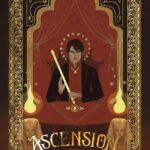


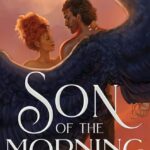

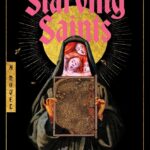
Leave a Reply